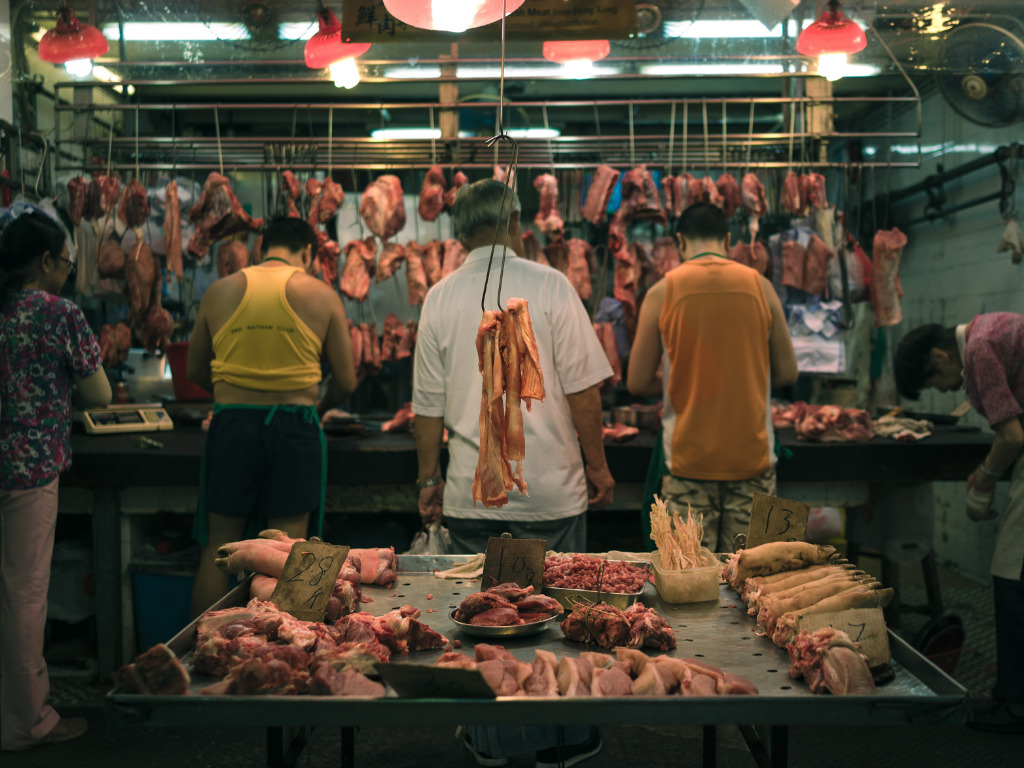3 Mins Read
A sixty percent increase in ammonia pollution since the 1980s is now linked to 90,000 premature deaths a year in China, according to new research.
A 30 percent spike in meat consumption over the last 30 years across China and Hong Kong has increased ammonia gas emissions, a leading cause of air pollution, according to the research out of Chinese University and the University of Exeter in Britain. Since the 1980s, farming-related ammonia has created 20 percent of air pollution in China, taking 90,000 lives.
But a shift to a diet that’s less meat-heavy could cut those death rates a startling amount, dropping from 90,000 to 15,000 a year, according to the research.

The study looked at how a reduction in meat consumption could improve air quality and reduce the number of early deaths. According to the findings, ammonia reacts with other pollutants in the air, forming the fine PM2.5 particulates, which can pass into the lungs and the bloodstream. Exposure to the pollutants increases the risk of lung disease, including cancer. This takes 90,000 lives a year, according to the research team.
“China’s population has increased sharply in the past 30 years, and the amount of meat consumed by each person has also grown, from around 30 grams per day to more than 150 grames a day,” Professor Amos Tai Pui-kuen, who led the research, told South China Morning Post. “Hongkongers eat even more, about 200 grams per person each day.”
According to the findings, increased meat consumption has led to a 433 percent production spike since 1980—growing from 15 to 80 megatons. The ammonia comes from the increased need for fertilizer and the larger livestock populations increase the animal waste produced.
Reducing animal consumption
The researchers suggest a reduction in meat consumption could help reduce the risks. China’s 2016 dietary guidelines suggest 40 to 75 grams of mat per day, but average consumption is double that, currently.
“Of course, we can’t undo the damage that has already been done, but what we can do is to move to a diet of mainly vegetables with a much smaller proportion of meat,” Tai said.
The news comes as Hong Kong announced plans earlier this year to reduce emissions and improve its air quality by 2035 along the same lines as Tokyo and Paris. While much of those efforts are focused around electric vehicles and claner energy, Tom Ng Hon-lam, a campaigner at Greenpeace in Hong Kong, says diet plays a significant role, too.
“It can be daunting, but people can try taking a step-by-step approach,” Ng said. “It can be as simple as just doing one meatless meal a month, then once a week, while cooking your own meals can also help.”
Lead image by Natalie Ng on Unsplash




